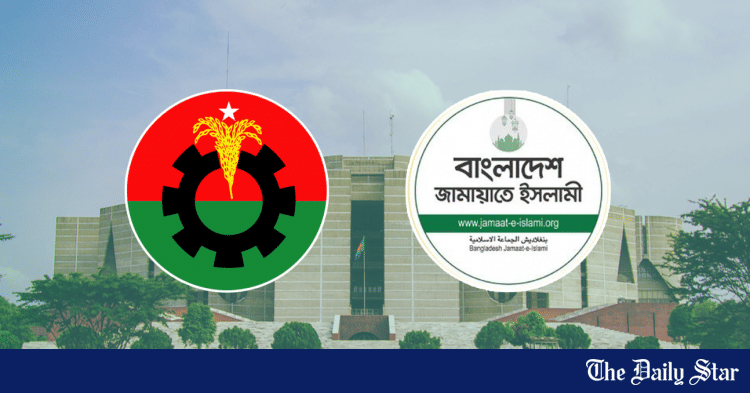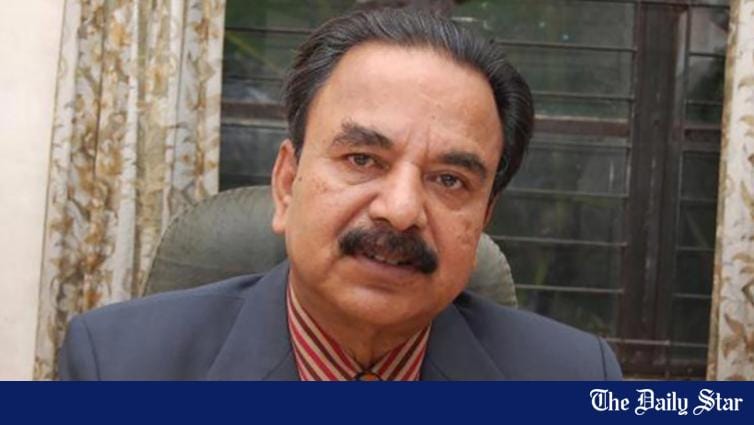Saif
Senior Member
- Joined
- Jan 24, 2024
- Messages
- 17,384
- Likes
- 8,373
- Nation

- Residence

- Axis Group

Date of Event:
Feb 15, 2025
Abbas calls out Jamaat's polls delaying tactics

File photo of Mirza Abbas
BNP senior leader Mirza Abbas today alleged that a certain political party is trying to confuse the government through various contradictory statements only to delay the national election.
"They talk about the election... sometimes they say they won't participate, sometimes they say they will... sometimes they say they will join if certain conditions are met, sometimes they say they will if other conditions are met," he said referring to Bangladesh Jamaat-e-Islami.
The BNP leader made the remarks while inaugurating the membership renewal programme for the party's Dhaka South City unit at the party's Nayapaltan central office.
Mirza Abbas said due to this party's wrong decisions in 2008, BNP and its alliance partners participated in the election.
"As a result, many prominent and well-known people in Bangladesh had to give up their lives at the gallows," he said referring to BNP and Jamaat-e-Islami leaders who were executed for crimes committed in 1971 at the International Crimes Tribunal.
Abbas, a BNP Standing Committee member, urged Jamaat not to repeat the same mistakes.
"A single wrong decision can cost the lives of lakhs of people... So, do not prolong the election issue... Various political parties are making contradictory statements about the election, confusing the government and placing it in an unstable position," he observed.
Abbas called upon the interim government to hold the national election by December this year, as per its previous announcement. "We are always ready for the elections, Insh'Allah."
He said those trying to disrupt the election process are, in effect, attempting to undermine the country's independence and sovereignty, depriving the people of their rights to free speech and vote. "Please, refrain from engaging in such activities."
Mirza Abbas also criticised the authorities for not arresting those involved in the Nabil Group's corruption, which resulted in the embezzlement of Tk 12,000 crore.
He pointed out that those associated with the Nabil Group seem untouchable due to their strong political connections with a particular political party.
The BNP leader alleged that a section of people are unfairly blaming BNP for various wrongdoings, while overlooking the party's efforts to maintain peace and tolerance.
He accused some political parties and politicians of supporting certain business groups that played a role in inciting violence during the July-August mass uprising, with promises to remain loyal to Sheikh Hasina until their deaths. "Despite their playing such role, they still did not face any consequences due to their political backing."
Abbas claimed that a political party, which is now quick to criticise BNP, had allied with these business groups.
"From now on, our task will be to expose such hypocritical political parties, which try to falsely blame others, and to reveal their true nature to the public," he stated.
Abbas cautioned BNP leaders and workers that those involved in anti-organisational activities or damaging the party's reputation should not be granted membership.
He also warned against opportunists, particularly from the Awami League, who might attempt to join BNP, asserting that such individuals would harm the party.
Abbas stressed the importance of quality over quantity, stating that the party values loyal and solid members over large numbers.
He voiced concern about rising commodity prices, noting that business syndicates are becoming more active as Ramadan approaches amid the government's inaction.
File photo of Mirza Abbas
BNP senior leader Mirza Abbas today alleged that a certain political party is trying to confuse the government through various contradictory statements only to delay the national election.
"They talk about the election... sometimes they say they won't participate, sometimes they say they will... sometimes they say they will join if certain conditions are met, sometimes they say they will if other conditions are met," he said referring to Bangladesh Jamaat-e-Islami.
The BNP leader made the remarks while inaugurating the membership renewal programme for the party's Dhaka South City unit at the party's Nayapaltan central office.
Mirza Abbas said due to this party's wrong decisions in 2008, BNP and its alliance partners participated in the election.
"As a result, many prominent and well-known people in Bangladesh had to give up their lives at the gallows," he said referring to BNP and Jamaat-e-Islami leaders who were executed for crimes committed in 1971 at the International Crimes Tribunal.
Abbas, a BNP Standing Committee member, urged Jamaat not to repeat the same mistakes.
"A single wrong decision can cost the lives of lakhs of people... So, do not prolong the election issue... Various political parties are making contradictory statements about the election, confusing the government and placing it in an unstable position," he observed.
Abbas called upon the interim government to hold the national election by December this year, as per its previous announcement. "We are always ready for the elections, Insh'Allah."
He said those trying to disrupt the election process are, in effect, attempting to undermine the country's independence and sovereignty, depriving the people of their rights to free speech and vote. "Please, refrain from engaging in such activities."
Mirza Abbas also criticised the authorities for not arresting those involved in the Nabil Group's corruption, which resulted in the embezzlement of Tk 12,000 crore.
He pointed out that those associated with the Nabil Group seem untouchable due to their strong political connections with a particular political party.
The BNP leader alleged that a section of people are unfairly blaming BNP for various wrongdoings, while overlooking the party's efforts to maintain peace and tolerance.
He accused some political parties and politicians of supporting certain business groups that played a role in inciting violence during the July-August mass uprising, with promises to remain loyal to Sheikh Hasina until their deaths. "Despite their playing such role, they still did not face any consequences due to their political backing."
Abbas claimed that a political party, which is now quick to criticise BNP, had allied with these business groups.
"From now on, our task will be to expose such hypocritical political parties, which try to falsely blame others, and to reveal their true nature to the public," he stated.
Abbas cautioned BNP leaders and workers that those involved in anti-organisational activities or damaging the party's reputation should not be granted membership.
He also warned against opportunists, particularly from the Awami League, who might attempt to join BNP, asserting that such individuals would harm the party.
Abbas stressed the importance of quality over quantity, stating that the party values loyal and solid members over large numbers.
He voiced concern about rising commodity prices, noting that business syndicates are becoming more active as Ramadan approaches amid the government's inaction.









































